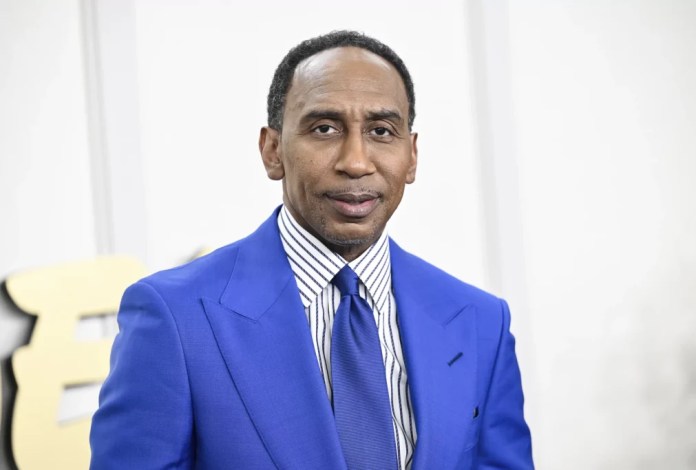‘Reagan’ Is A Love Letter Not Just To Him But To America
The film “Reagan” presents a biographical portrayal of former President Ronald Reagan, focusing on his life and contributions as a significant conservative figure in American politics. In an industry often critical of conservative ideals, the film defies this trend by handling Reagan’s narrative with respect, despite facing various production challenges like financing and pandemic-related delays.
Set against the backdrop of the Cold War, the film chronicles Reagan’s journey from his youth and acting career to his time as California governor and eventual presidency. It highlights key moments in his life, including his relationship with Nancy Reagan, political struggles, and his battle with Alzheimer’s disease. While adopting a near-hagiographical approach, it incorporates nuanced moments of vulnerability.
A framing device featuring a former KGB agent discussing Reagan’s impact adds a unique narrative structure, connecting past and present themes, particularly the struggle for freedom against communism. The film emphasizes Reagan’s steadfast opposition to totalitarianism and his policies promoting peace through strength during the Cold War, while also addressing his domestic reforms.
Despite its rapid pace, which sometimes oversimplifies details, “Reagan” delivers an optimistic representation of 1980s America. Dennis Quaid’s portrayal of Reagan has been highlighted for capturing the former president’s essence effectively, while the film itself is noted for its positive depiction of Reagan’s Christian faith, which played a significant role in his life and decisions. The inclusion of actual historical footage along with reenactments lends authenticity to the storytelling, presenting a pro-America stance and acknowledging the realities of the time. “Reagan” stands as a refreshing counter-narrative in a Hollywood landscape often critical of conservative values.
Film portrayals of modern conservative figures tend to treat their subject matter as either horrifically evil, fodder for comedy, or both. That’s because conservatives are heavily outnumbered in Hollywood, and celebrities lend their fame and dollars to Democrat politicians.
But this is not always the case. Sometimes conservative-themed projects handle the subject matter with the care it deserves. This is true of the newly released biopic of our 40th president and a Republican hero, Ronald Reagan.
Despite the many hurdles this project faced — financing troubles, pandemic-driven set shutdowns, and negative left-wing reviewers — “Reagan” turned out to be a success, presenting the life of one of America’s greatest modern leaders in all its glory. At a time when Reagan’s legacy is denigrated by partisans on both right and left, America faces its greatest geopolitical challenges since the Cold War, and the nation’s mood is decidedly sour, this film is a breath of fresh air. It reminds us of what is most important in life: faith, family, fidelity, and freedom.
“Reagan” tells the story of its subject’s life chronologically, after a brief scene depicting his attempted assassination. It explores his youth, acting career, life as Screen Actors Guild president, time in California politics, relationship with Nancy, and eventual presidency. Although the film takes a near-hagiographical tone toward its subject, there are moments of vulnerability: his late acting career, divorce from his first wife, loss of a child, failed 1976 candidacy, Iran-Contra, and, most touchingly, his struggle with Alzheimer’s.
The biographical aspects fit within an overarching structure in which a former KGB agent (Jon Voight) is explaining to an up-and-coming Russian politician how Reagan defeated the USSR. This framing device breaks up the narrative, allows for faster pacing and useful time skips, and lends Reagan’s life a sense of inevitable destiny. Some of the cutbacks to present-day Russia can be a tad jarring, and the accents in these scenes are distractingly unconvincing, but the choice to frame the film this way does a good job of linking the past to the present.
The movie centers around the existential struggle for freedom against communism, a conflict in which Reagan willed America to victory. The film details his lifelong love of liberty and how it made him into one of the staunchest opponents of totalitarian communism, from his days as a union leader in socialist Hollywood to his crackdown on anti-American protests as California governor and his anti-Soviet actions as president. The movie promotes the successful Reaganite policy of peace through strength and the administration’s efforts at deterrence and diplomacy. The geopolitics of the Cold War are far more central to the film’s plot than Reagan’s domestic reforms. Still, those changes are not given short shrift entirely, as the air traffic controller strike, tax reform, and deregulation fit within a broader pro-freedom agenda.
“Reagan” moves quickly, rarely spending more than a few minutes on any particular scene. This keeps things interesting but also makes the movie into something of a highlight reel where details are obscured and nuance can be lacking. Still, this rapid pacing is more good than bad, allowing much ground to be covered in the film’s 135-minute runtime. There are moments of levity, especially a rapid-fire montage of the funerals of three Soviet leaders — Brezhnev, Andropov, and Chernenko — in Reagan’s first few years in office. The movie’s overall tone is more schmaltzy than serious, but it remains a fun ride through 1980s America, bringing the optimistic tone of the Reagan years to the silver screen.
Aside from the less-than-stellar performance from Voight, the majority of the other characters are played quite adeptly. Dennis Quaid is excellent as Ronald Reagan, bringing a gravitas and charisma to the role that is true to life and imitating the former president’s speech patterns skillfully. In a deeply moving sequence near the end of the film, Quaid plays a senescent Reagan, bringing a sense of melancholy to his acting that is familiar to anyone with an elderly relative in decline. Viewers get the sense this was the role Quaid was meant to play. Supporting performances from Penelope Ann Miller (Nancy Reagan), Amanda Righetti (Nelle Reagan, Ronald’s mother), and Xander Berkeley (George Shultz) are great as well.
The film is refreshingly honest about the critical and positive role Christian faith played in Reagan’s life, from his mother’s deep belief to his repeated reliance on biblical messages in his crusade against Soviet communism. He is consistently portrayed as centering God in everything he does, and many of the formative moments in Reagan’s life are related to his faith.
His earliest days as an orator were in his local parish. He first learned of the horrors of totalitarian communism from a Soviet dissident who spoke at his church. He is seen praying over major life decisions. His faith helped him get through the nearly successful attempt on his life. Far too often, sincere faith is ignored in Hollywood; religion is instead depicted as backward and dangerous, if not entirely cynical. Thus “Reagan” is a positive island in a sea of negativity.
The movie also does some interesting things historically. During certain scenes, actual historical video clips are meshed with the actors’ performances, which works well. For instance, Walter Mondale’s reaction to Reagan’s famous age quip — which Quaid delivers in the movie — is taken straight from the 1984 telecast. This brings a much-needed air of authenticity to these scenes. The film also takes a strong pro-America and anti-communist position, showing the reality of Soviet malignity, the painful unfreedom of totalitarianism, the righteousness of the American cause, and the truth of the communist infiltration of Hollywood in the 1930s and ’40s — something that likely did not endear the film to left-wing critics and producers.
As “Reagan” is a biopic of a recent figure, several historical moments that have been captured on video are reenacted by Quaid and others. These are handled adroitly, particularly famous speeches delivered by the protagonist. Quaid absolutely nails Reagan in these scenes: the 1964 “Time for Choosing” address, the 1983 “Evil Empire” speech, and the 1987 oration in Berlin exhorting Soviet leader Mikhail Gorbachev to “tear down this wall.” Quaid’s delivery of those four world-altering words is the capstone of his spectacular performance.
In “Reagan,” America is presented as an unalloyed force for good, a bastion of freedom in a hostile, unfree world. In Reagan’s words, a “shining city on a hill.” This message is just as important today as it was 40 years ago. In 2024, America faces its greatest challenges since the turn of the 1980s: a chaotic foreign environment, aggressive foes who take advantage of our weakness, economic stagnation and inflation, anti-American protests at home, Americans held hostage abroad, and statist expansion of government power.
By the end of that decade, the Soviet Union was on its last legs, the economy was thriving, freedom had spread across the world, and America was once again the strongest power on Earth. Much of that success was due to one man: Ronald Reagan. Rediscovering the Reaganite solutions to those problems — and his optimistic, faith-based, pro-America attitude — could serve us well today.
“Reagan” may be a nostalgic paean to the 40th president and his ideology of liberty above all, but that is exactly what we need today. As the man himself said: “You and I have a rendezvous with destiny. We’ll preserve for our children this, the last best hope of man on Earth, or we’ll sentence them to take the last step into a thousand years of darkness.”
It is once again a time for choosing, and “Reagan” reminds us how to choose wisely.
Mike Coté is a writer and podcaster focusing on history, Great Power rivalry, and geopolitics. He has also written for National Review and The National Interest, blogs at rationalpolicy.com, and can be found on Twitter @ratlpolicy.
" Conservative News Daily does not always share or support the views and opinions expressed here; they are just those of the writer."




